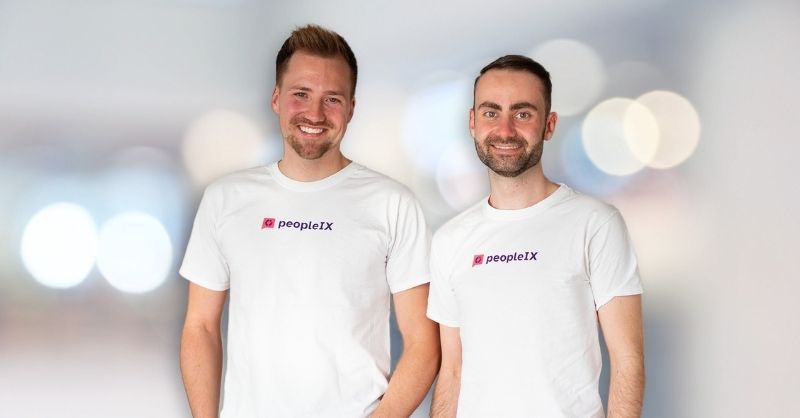Key Takeaways:
I. Familiar Machines & Magic must overcome significant technical hurdles to create truly intelligent and versatile home robots.
II. Differentiation through a focus on health and wellness, combined with strategic partnerships, will be crucial for market success.
III. Addressing ethical concerns surrounding data privacy and the societal impact of home robots is essential for long-term viability.
Colin Angle, co-founder of iRobot and the mastermind behind the Roomba, is back with a new venture: Familiar Machines & Magic. Having secured $15 million in initial funding, with a goal of raising $30 million, the company is poised to make a splash in the home robotics market. But this is a market littered with the remnants of failed ventures – Jibo, Anki, Kuri, and more recently, Moxie. Can Angle defy the odds and replicate the Roomba's success? Familiar Machines & Magic is betting on health and wellness, a burgeoning sector with significant potential. This article explores the challenges and opportunities facing Angle's new venture, analyzing its potential to redefine the smart home robotics landscape.
The Technological Tightrope: Building the Next Generation of Home Robots
Current home robots are essentially sophisticated appliances. Robot vacuums, like iRobot's Roomba, excel at navigating floors and picking up debris, while lawnmowers autonomously trim grass. However, these robots operate within tightly defined parameters, lacking the adaptability and intelligence to handle the dynamic and unpredictable nature of a real home environment. They struggle with unexpected obstacles, changing layouts, and complex tasks that require true understanding of the surroundings.
Building truly intelligent and versatile home robots requires overcoming significant technical hurdles. Robust navigation in dynamic environments necessitates advanced sensor fusion, combining data from lidar, cameras, and other sensors to create a real-time 3D map of the home. Dexterous manipulation, enabling robots to interact with objects in a human-like way, demands advancements in robotic grasping, force sensing, and control algorithms. Furthermore, seamless human-robot interaction requires progress in natural language processing, allowing robots to understand and respond to voice commands, and computer vision, enabling them to interpret human gestures and facial expressions.
Familiar Machines & Magic, with its experienced team and focus on health and wellness, is well-positioned to address these challenges. Colin Angle's leadership, combined with the expertise of co-founders Chris Jones and Ira Renfrew, brings a wealth of experience in robotics, AI, and product development. Their backgrounds suggest a focus on practical, real-world applications, rather than chasing futuristic visions. This pragmatic approach, coupled with their understanding of consumer needs, could be a key differentiator.
A critical factor for Familiar Machines & Magic's success will be avoiding the "valley of disappointment" that often plagues emerging technologies. Overpromising and underdelivering can lead to consumer disillusionment and market stagnation. By focusing on incremental improvements, rigorous testing, and user feedback, the company can build trust and demonstrate tangible value. This measured approach, combined with a deep understanding of the technical challenges, could set Familiar Machines & Magic apart from previous ventures.
Navigating a Competitive Landscape: The Battle for the Smart Home
The smart home robotics market is becoming increasingly crowded and competitive. iRobot, with its estimated 75% market share in robot vacuums in North America, remains a dominant force. Amazon, with its Astro robot and integration with the Alexa ecosystem, is a formidable competitor. Other established players like Ecovacs, SharkNinja, and Samsung are also vying for market share. This competitive landscape presents a significant challenge for any new entrant, especially in a market with a history of high-profile failures.
Familiar Machines & Magic's focus on health and wellness offers a potential path to differentiation. As the global population ages, the demand for in-home care solutions is rapidly increasing. Robots that can assist with medication management, provide remote health monitoring, and detect falls could address a significant unmet need. However, success will depend on demonstrating tangible benefits and justifying the cost of these robots compared to traditional caregiving options.
Strategic partnerships will be crucial for Familiar Machines & Magic's market entry and growth. Collaborations with healthcare providers, telehealth platforms, and insurance companies could provide access to distribution channels, customer bases, and valuable data for improving robot functionality. The company's existing relationship with Data Point Capital is a positive sign, but securing additional funding and forging strategic alliances will be essential for long-term success.
Beyond technology and partnerships, Familiar Machines & Magic needs to build a strong brand and establish trust with consumers. The home is a deeply personal space, and consumers need to feel comfortable inviting robots into their lives, especially robots that collect and process sensitive health data. Effective marketing, transparent communication, and a focus on user experience will be essential for building consumer confidence and driving adoption.
The Ethical Imperative: Responsible Robotics in the Home
Robots operating in the health and wellness space raise significant ethical concerns, particularly regarding data privacy. Collecting sensitive information about individuals' health, habits, and daily routines requires robust security measures and transparent data policies. Familiar Machines & Magic must prioritize data encryption, user consent, and clear communication about how data is collected, stored, and used. Building and maintaining consumer trust is paramount, especially given the growing skepticism surrounding data privacy in the connected home.
Beyond data privacy, broader ethical questions arise regarding the role of robots in our homes, especially in sensitive areas like healthcare. The potential for over-reliance on robots, the displacement of human caregivers, and the impact on social interaction needs careful consideration. As robots become more integrated into our lives, it's crucial to ensure they complement, rather than replace, human connection. Furthermore, issues of algorithmic bias, accessibility for diverse populations, and the equitable distribution of these technologies need to be addressed proactively to prevent exacerbating existing inequalities.
The Future Unfolds: A New Era for Home Robotics?
Familiar Machines & Magic enters a market ripe with both promise and peril. The company's success hinges on its ability to navigate a complex landscape of technical challenges, competitive pressures, and ethical considerations. While Colin Angle's experience and the team's technical expertise offer a foundation for optimism, the history of home robotics is a stark reminder of the difficulties ahead. By embracing a pragmatic, human-centered approach to development, prioritizing data privacy and ethical considerations, and focusing on delivering tangible value to consumers, Familiar Machines & Magic has the opportunity to redefine the role of robots in our homes. The coming years will reveal whether this venture can truly deliver on its promise and usher in a new era of meaningful home robotics.
----------
Further Reads
I. The 15 best robots and AI tech we saw at CES 2024 | ZDNET
II. AI Robots: When Will They Be in Our Homes? - IEEE Spectrum
III. Becoming a Robotics Engineer in 2024: A Step-by-Step Guide | Udacity









